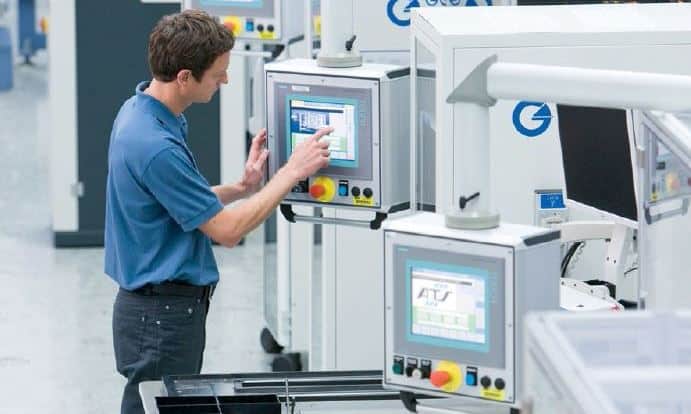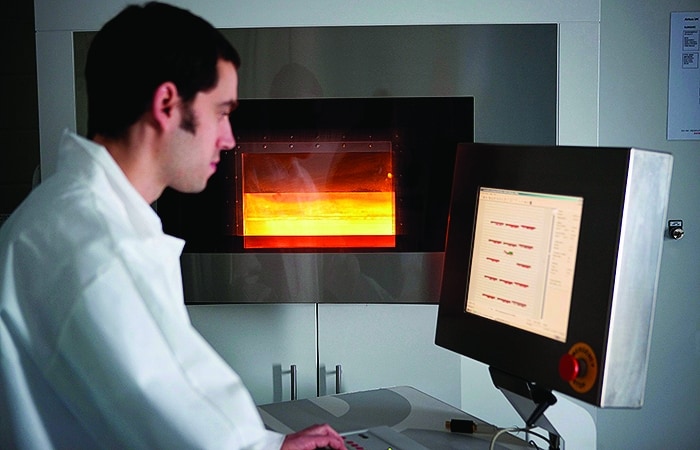Industry 4.0 - also referred to as the Fourth Industrial Revolution (4IR) - is often regarded as the total digitisation of a manufacturing process, using vast amounts of real-time data to manufacture production quantities of ‘one-off’ items without incurring the cost of new tooling. However, there is another interpretation of 4IR that will seem much more appealing to many engineers and manufacturers that allows them to take advantage of some ‘low hanging fruit’.
This interpretation involves using digital control systems to improve the performance of a specific stage within a larger manufacturing process. Typically, this might involve the more accurate deposition of industrial adhesives to a complex component, which is made of several different parts. In this example, digitisation has improved accuracy, reduced failure rates and significantly cut down on material use. Employing digital controls here has also improved productivity.

This becomes even more of an opportunity when you consider that recent figures from the Engineering Employers’ Federation (EEF) show that just 11 percent of manufacturers think that UK industry is ready to take advantage of 4IR. Furthermore, statistics from accountants PwC show that UK companies are planning to invest on average seven times less than their German counterparts in 4IR over the next five years.
The lack of investment could see UK manufacturers seriously miss a trick and lose work to their European counterparts, especially when it doesn’t take a huge amount of effort to embrace 4IR and digitisation.
Another example of where digital control could be quickly utilised is screen printing, a process typically used to apply adhesives to laminated bonded parts. This process is seen in the manufacture of automotive windscreens and kitchen worktops. Here, adhesives are usually applied using screen printing. Replacing this with a digital process allows you to print only where the adhesive is needed. It therefore cuts down on material use and provides endless opportunities for personalised products and flexible manufacturing processes.
Digitisation can also have an impact on accuracy, cutting waste and cost from a component that suffers from inherent material waste and quality issues. The component consists of several materials, each having undergone their own unique manufacturing process. Once finished, these are then bonded in a relatively uncontrolled way, resulting in a fair amount of wastage. This can prove inefficient at times in terms of time to manufacture.

One solution would be to manufacture the entire component digitally, perhaps via 3D printing. However, this solution is still some years away from being a cost-effective and viable option for a lot of manufacturers. However, there are other quick wins that digitisation can bring to this problem. For example, we’ve automated the adhesive deposition required to bond the parts together in a precise and controlled way, resulting in a reduction in material wastage and ensuring an accurate bond every time.
This is one of the best examples of adopting 4IR and it not involving huge set-up costs, but still reaping the benefits that digitisation can offer engineers and manufacturers.
These are just a few examples of the low hanging fruit available to companies operating in the 4IR sphere. My main point is that 4IR is nothing to baulk at and dismiss because of a perception that it involves huge set up and major costs. 4IR offers massive opportunities for manufacturers, so it is important to remember that it’s not about totally digitised processes – you can adopt part-digitisation through software to use 4IR technology when you need it.
Kieron Salter is Managing Director of high performance engineering consultancy KW Special Projects.





JLR teams with Allye Energy on portable battery storage
This illustrates the lengths required to operate electric vehicles in some circumstances. It is just as well few electric Range Rovers will go off...